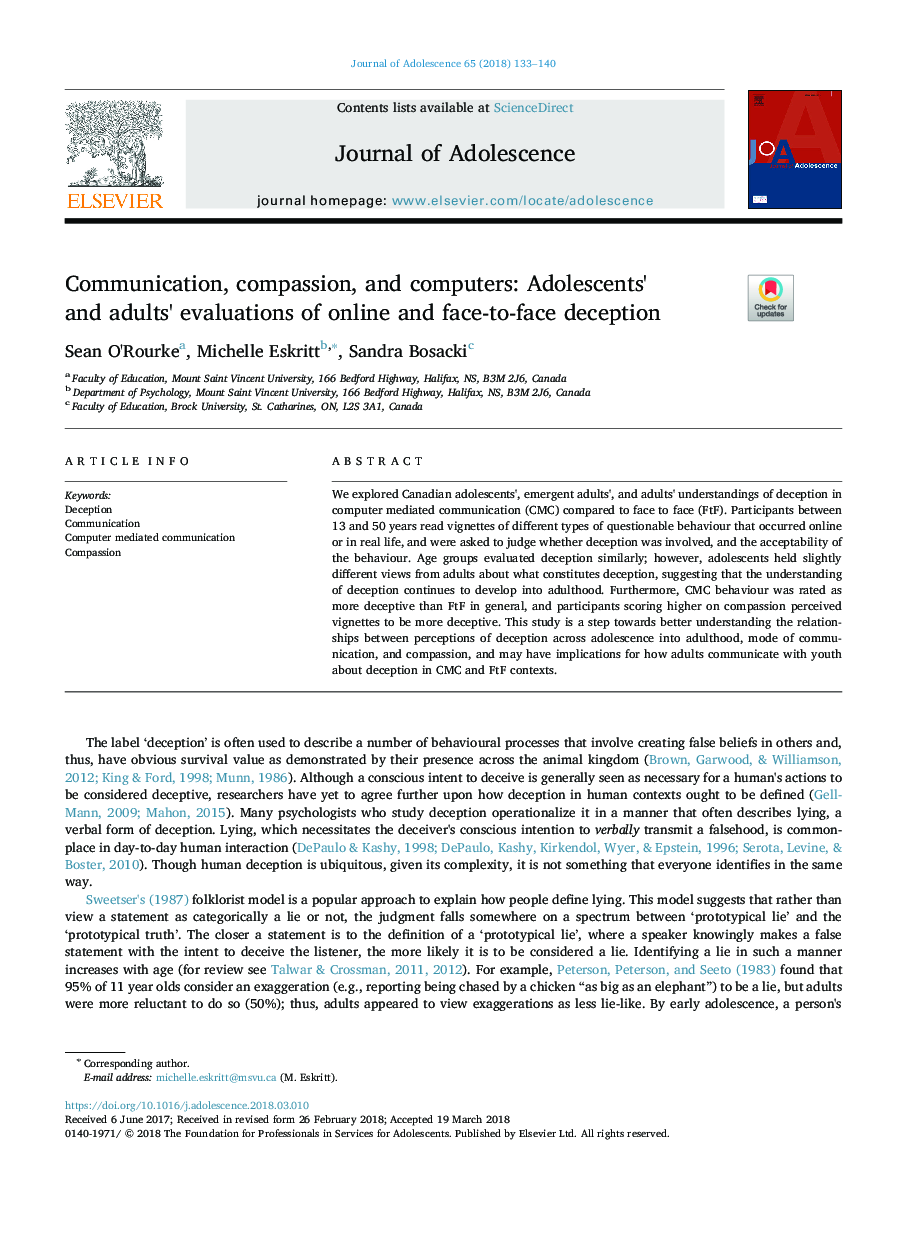| Article ID | Journal | Published Year | Pages | File Type |
|---|---|---|---|---|
| 7240841 | Journal of Adolescence | 2018 | 8 Pages |
Abstract
We explored Canadian adolescents', emergent adults', and adults' understandings of deception in computer mediated communication (CMC) compared to face to face (FtF). Participants between 13 and 50 years read vignettes of different types of questionable behaviour that occurred online or in real life, and were asked to judge whether deception was involved, and the acceptability of the behaviour. Age groups evaluated deception similarly; however, adolescents held slightly different views from adults about what constitutes deception, suggesting that the understanding of deception continues to develop into adulthood. Furthermore, CMC behaviour was rated as more deceptive than FtF in general, and participants scoring higher on compassion perceived vignettes to be more deceptive. This study is a step towards better understanding the relationships between perceptions of deception across adolescence into adulthood, mode of communication, and compassion, and may have implications for how adults communicate with youth about deception in CMC and FtF contexts.
Related Topics
Health Sciences
Medicine and Dentistry
Public Health and Health Policy
Authors
Sean O'Rourke, Michelle Eskritt, Sandra Bosacki,
